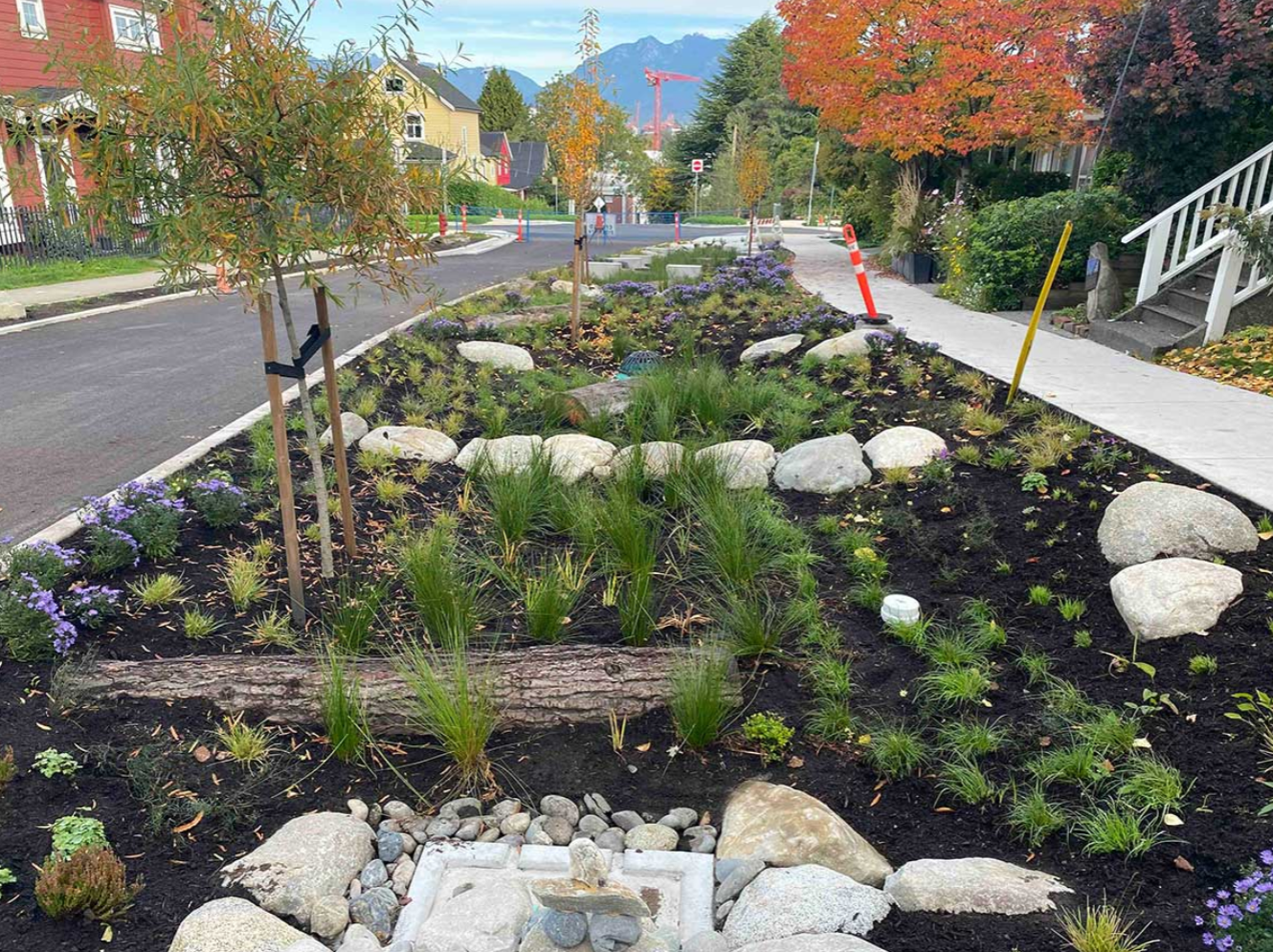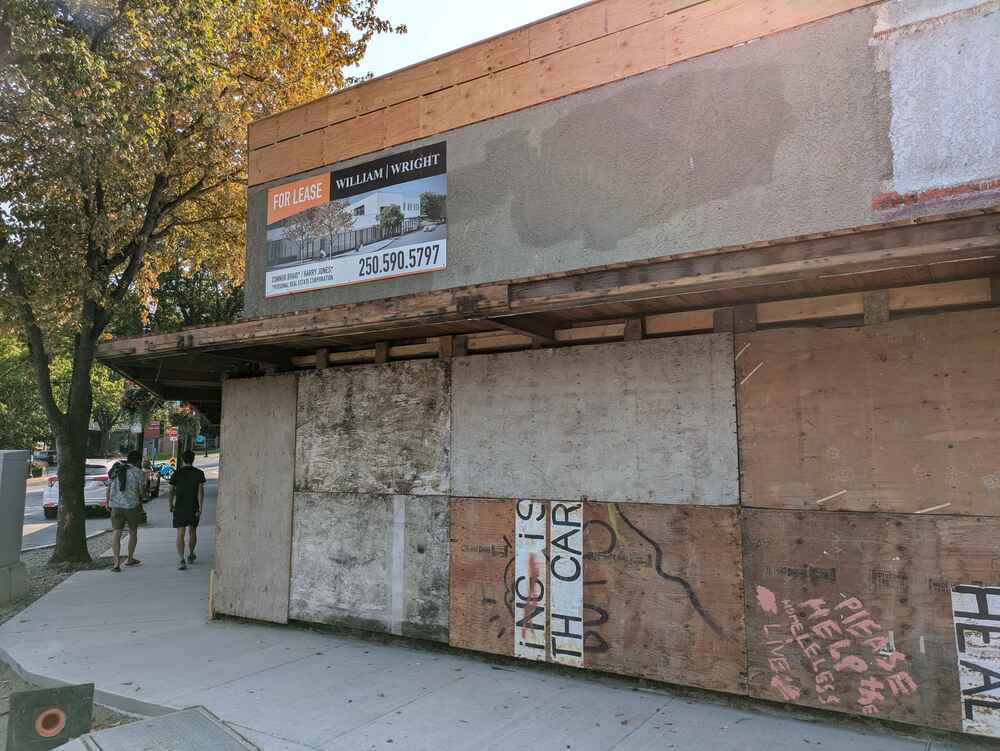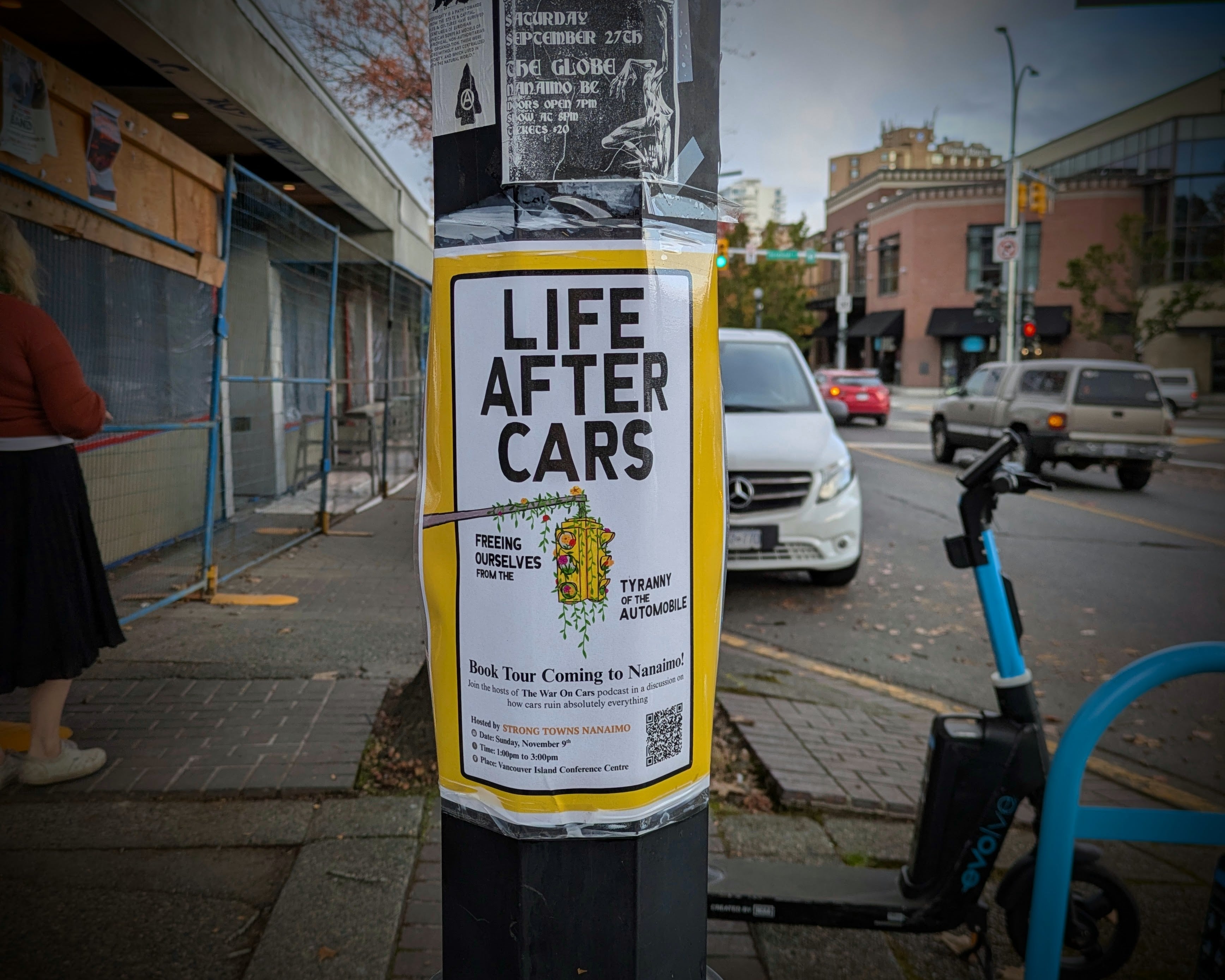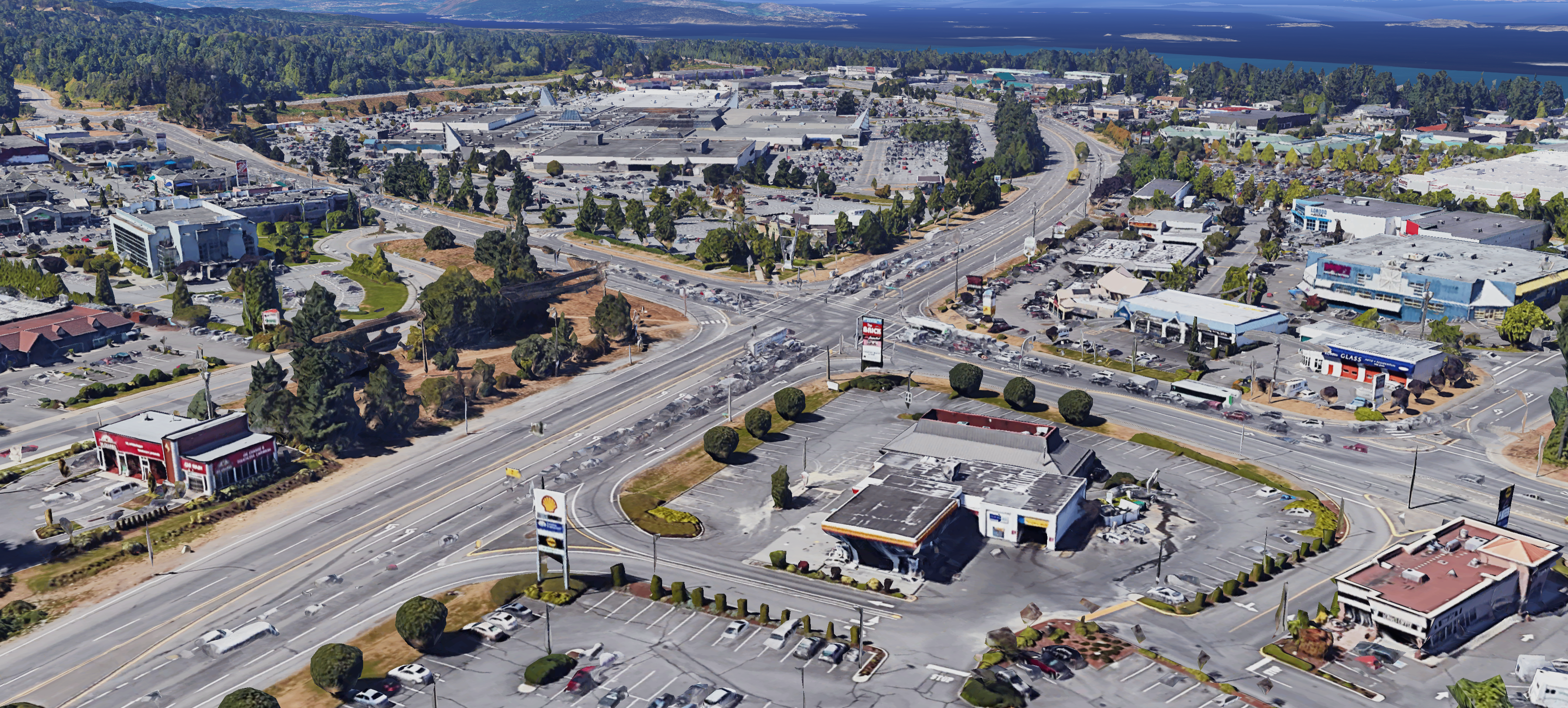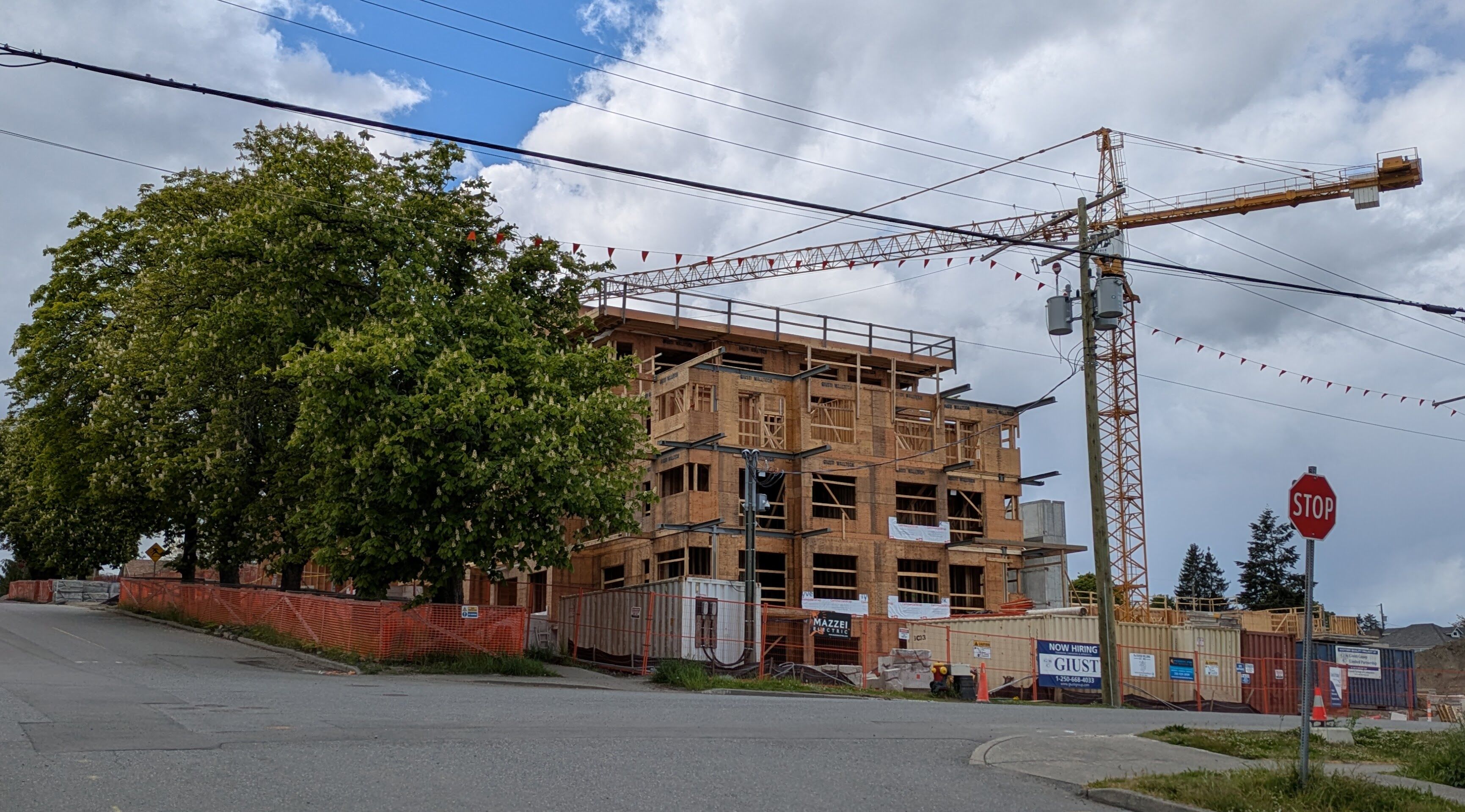- Suites–Build, Build, Build!
- Pre-Zoning Existing Neighbourhoods
- Family-Sized, Accessible Units
- Closing Thoughts: The Good
- Closing Thoughts: The Bad
- Get Involved, Reader!
Things are heating up in Nanaimo! As the province prepares to release its policies for eliminating single-family zoning this fall, Nanaimo is already trying to get ahead by putting forward its own missing middle policy. On September 1st, the city released a survey titled “Increasing Housing Options.” City staff are soliciting feedback on a number of recommendations to help increase the supply of housing in Nanaimo.
 Increasing Housing Options is a series of recommended changes aimed at making housing more attainable in Nanaimo.
Increasing Housing Options is a series of recommended changes aimed at making housing more attainable in Nanaimo.
Here at Strong Towns Nanaimo, we believe that a strong and resilient community is built upon a foundation of advocacy for building welcoming, dynamic, and productive urban spaces for all. What’s so great about the recommended proposals is that these changes aren’t revolutionary. As you’ll see, these small changes will allow for the kinds of natural, incremental development Strong Towns supports. So, what exactly is the city proposing?
Suites–Build, Build, Build!
Staff have recommended allowing both attached and detached suites, sometimes known as “carriage houses”, “laneway homes,” “granny flats,” or “garden suites,” on the same property as single family homes. Currently, the majority of the city was zoned for a single-family home with a single suite. Now, R-1 (single-family) zoning would allow up to two rental dwellings on a lot. In addition, the city is looking to allow suites and building typologies that were previously off limits, like duplexes and rowhouses.
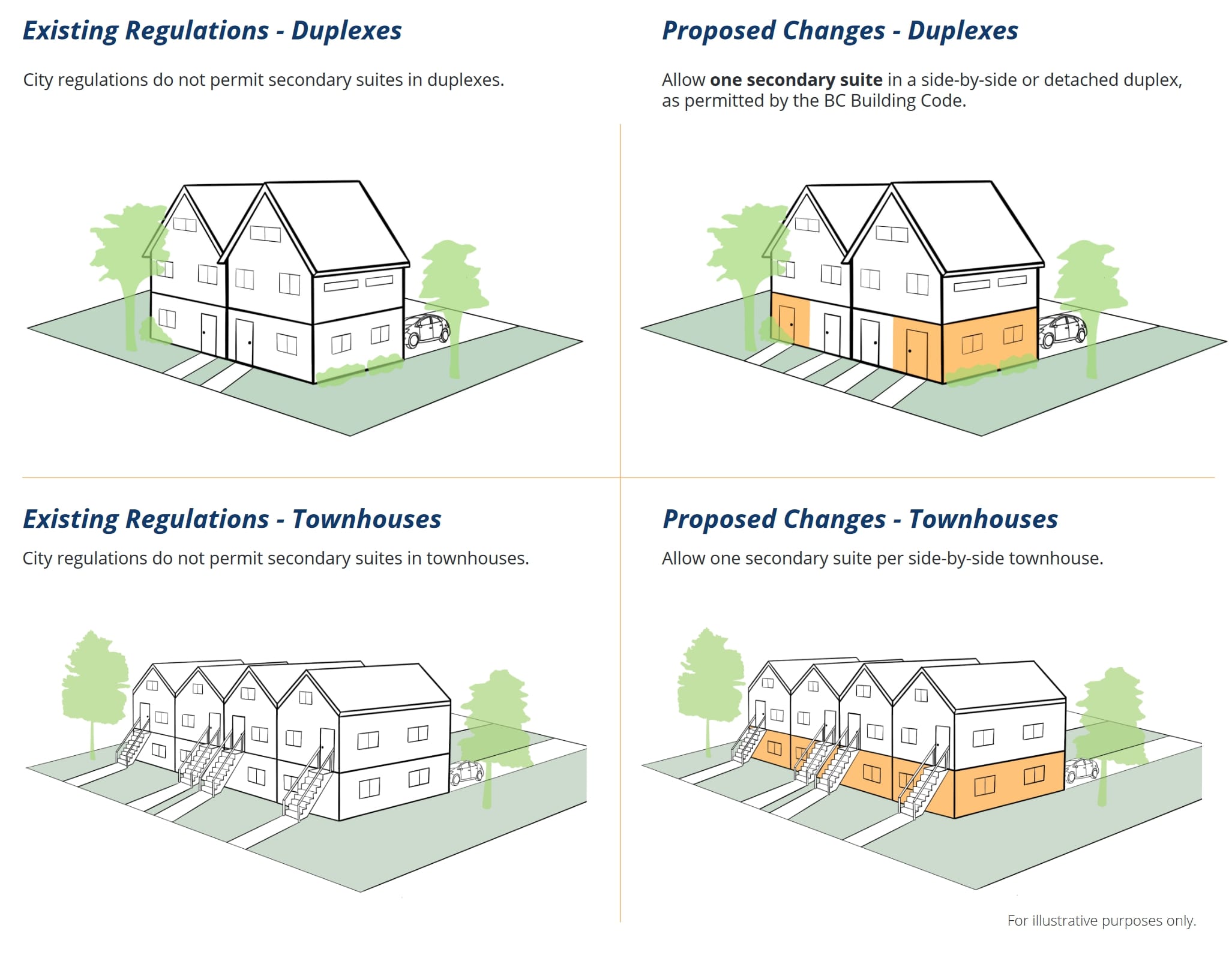 Currently, secondary suites are only permitted where there is a single residential dwelling as the principal use. The proposal is to allow secondary
suites in duplexes and townhouses, as is now permitted by the BC Building Code. By aligning these regulations, we can increase density within
existing neighbourhoods without changing the look or feel of the neighbourhood. (City of Nanaimo)
Currently, secondary suites are only permitted where there is a single residential dwelling as the principal use. The proposal is to allow secondary
suites in duplexes and townhouses, as is now permitted by the BC Building Code. By aligning these regulations, we can increase density within
existing neighbourhoods without changing the look or feel of the neighbourhood. (City of Nanaimo)
This would help evenly distribute density across Nanaimo without drastically altering any one existing neighborhood. Suites and laneways are great for incremental growth within Nanaimo’s communities; mom-and-pop landlords would be empowered to create homes themselves rather than relying on a developer. Rather than building large high-rises to account for our growing population, a practice seen often in cities like Vancouver or Toronto, Nanaimo can disperse growth across the city instead.
Pre-Zoning Existing Neighbourhoods
Perhaps the most exciting part of the city’s plan is the pre-zoning of lots around neighborhood centres to allow 3 and 4 unit households–also known as a plex. Pre-zoning is when the city proactively changes a zoning designation to incentivise certain kinds of developments in an area. Moreover, the city is decreasing lot size requirements and setback requirements for these types of homes, meaning that many smaller lots in the city will finally have the option to build something other than a single-family home. Typically, developers or residents have to apply for rezoning of a lot if they wanted to build something denser than a single-family home in most parts of the city.
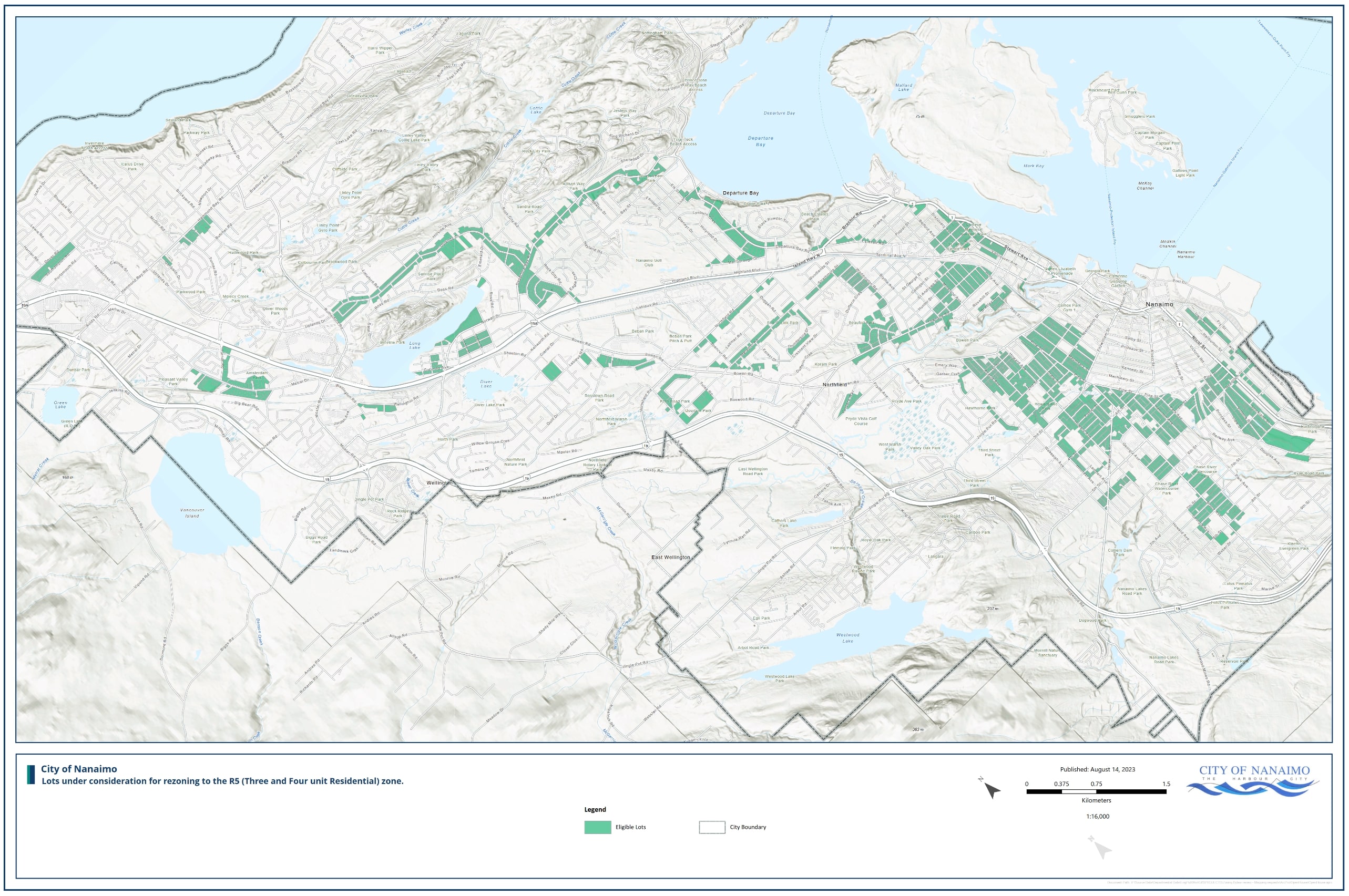 To increase the supply of triplexes and fourplexes, a much needed housing form, the city is proposing to prezone
key sites across the city. Prezoning means that three or four units could be constructed on a lot without going through a rezoning process. The City is proposing to prezone existing single family (R1/R1b) and duplex (R4) lots within a 1km buffer from the downtown, and within the
‘Neighbourhood’ designated areas in City Plan. (City of Nanaimo)
To increase the supply of triplexes and fourplexes, a much needed housing form, the city is proposing to prezone
key sites across the city. Prezoning means that three or four units could be constructed on a lot without going through a rezoning process. The City is proposing to prezone existing single family (R1/R1b) and duplex (R4) lots within a 1km buffer from the downtown, and within the
‘Neighbourhood’ designated areas in City Plan. (City of Nanaimo)
While this is relatively easy for developers with large investors, it becomes a barrier for family scale development–mom-and-pop landlords trying to build a secondary suite often lack the money and time to petition the city for a zoning amendment. But, this is what is so great about pre-zoning: by amending the zoning of certain lots around the city proactively, it makes the process of infill development both easier and cheaper. A win-win for people who need homes and for people who want to add suites on their property!
Family-Sized, Accessible Units
The city is looking for feedback on policies that might incentivize the construction of more family size units (+3 bedrooms) and adaptable units (units pre-built to be accessible for those with mobility needs). Some policies proposed aim to increase density near schools for buildings that incorporate family sized units, requiring a certain number of units that are +2 bedrooms, and mandating a certain percentage of all apartment units to be adaptable.
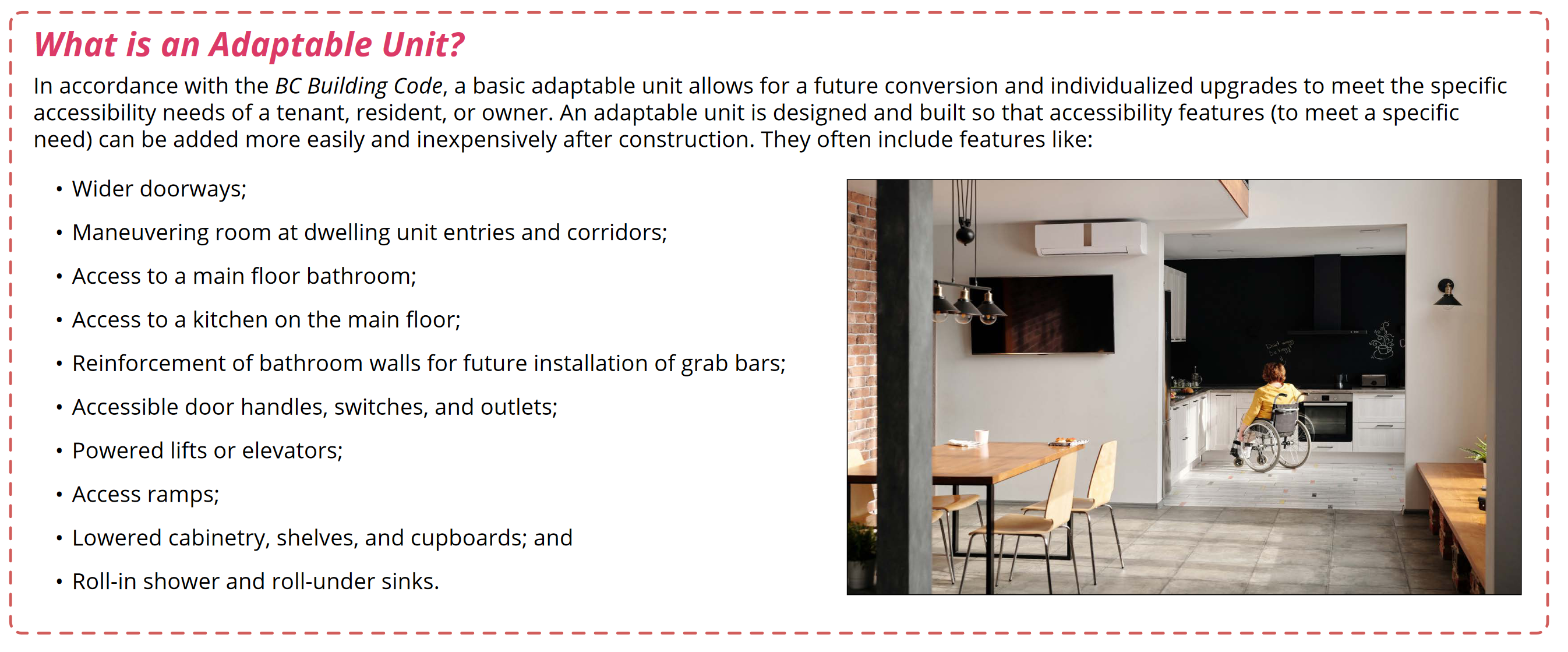 The Canadian Survey on Disability reports that 22% of the Canadian population aged 15 years and over have one or more
disability, and for those aged 75 years and over, 47% have one or more disability. Adaptable housing refers to housing with the
potential to accommodate all community members regardless of their physical abilities. Adaptable units can benefit anyone
whose mobility is limited due to age, disability, or illness, making it easier for them to function more independently in their own home
and age in place over time. (City of Nanaimo)
The Canadian Survey on Disability reports that 22% of the Canadian population aged 15 years and over have one or more
disability, and for those aged 75 years and over, 47% have one or more disability. Adaptable housing refers to housing with the
potential to accommodate all community members regardless of their physical abilities. Adaptable units can benefit anyone
whose mobility is limited due to age, disability, or illness, making it easier for them to function more independently in their own home
and age in place over time. (City of Nanaimo)
Many older buildings in Nanaimo are prohibitive to those with diverse mobility needs. Often doorways, countertops, and showers are uncomfortable to use, at best, or impossible to access at worst. Requiring the inclusion of more adaptable units to apartments can be a gamechanger for renters who struggle to find places that are built to welcome them, especially in a city with a higher-than-average senior population.
Closing Thoughts: The Good
The city’s plan is an amazing step in the direction of housing affordability, accessibility, and density. Nanaimo’s mayor, council, and staff are all keenly aware of the issues in the Harbour City, and they seem prepared–and excited–to make things better!
- Strong First Step: The city is taking action to create more opportunities for affordable and attainable housing for all types of people. Nanaimo wants to get ahead of the BC Government’s upcoming Homes for People plan that’s expected this fall.
- Small Scale: These changes allow for smaller scale development on lots that were previously off limits to any incidental change. We don’t need to do anything drastic; gentle density everywhere will prevent Nanaimo from needing to build large towers, like in Vancouver and Toronto.
- Community Level Change: While larger scale development has its place, these changes will allow for small, mom-and-pop residential development. Families and home owners, not multi city developers, will be able to make small changes to the uses of their properties without changing the neighbourhood.
- Loosening Restrictions: Restrictive zoning has forced other cities to concentrate growth in massive rezoning developments, typically along congested arterials. Spreading out density evenly across the whole city benefits communities not companies as people can over time add to their homes without creating clogged up arterial roads and large towers. Legalizing missing-middle housing means a return to duplexes, triplexes, and rowhomes.
This is all exciting stuff! These changes are in line with what Strong Towns Nanaimo is all about: we advocate for incremental housing with looser zoning, increased density, and mixed use neighbourhoods. Nanaimo seems to be working towards these goals, and we’re thrilled!
Closing Thoughts: The Bad
However, the city’s plan isn’t perfect. Parking minimums will remain, meaning that parking will be determined by arbitrary regulation instead of real-life expectations. A home in Harewood has access to some of the best transit in town, so why should a mom-and-pop landlord be forced to add tons of extra parking for a suite? The plan itself is a good start, but it’s not a magic-bullet.
- Parking: The city’s parking requirements still can pose a barrier to development. Taking a duplex for example: A duplex, depending on the unit size, could be required to provide two parking spaces per-unit. On top of this, if each duplex had their own suite, they could theoretically be required by the city to provide up to 6 parking spaces on the property. Such a burden on land use might prevent development on the smaller lots that the city is trying to encourage development for. In such a housing crisis as the one BC is facing currently is the best use of city land parking? The city should ask itself does it want space for people or for parking in its neighbourhoods?
- Stratas: Housing is still more of a dream to many residents in BC. Allowing the stratification of laneway homes and suites to be sold separately from the larger homes on an R-1 lot could be done without subdividing the property. Instead, the buyer would purchase the unit, like they would with a condo. Smaller, ground-oriented homes being built and sold would help keep families and multigenerational households in our city. Something similar just passed in Vancouver!
The city can do more (and likely will). As noted at the beginning, the BC government is on the move when it comes to housing supply. The city should begin considering pre-zoning for small scale apartments and 5-over-1 style apartments in areas outlined by the Nanaimo City Plan.
Get Involved, Reader!
If you like these ideas and want to learn more, or if you want to provide feedback, submit the city’s Housing Options survey! The survey is open until September 29th, 2023. If you’ve followed Strong Towns Nanaimo for a while, you’ll know we are all about creating a more welcoming, affordable, and equitable city. We’re optimistic about the direction Nanaimo is heading, and with our community members’ input on projects such as these, we can continue to support Nanaimo as it becomes a genuine Strong Town.
CBC spoke with us about the new provincial housing targets for municipalities. We expressed our enthusiasm towards these housing targets and Nanaimo’s new housing plan while commenting on its lack of ambition and explicit penalties for municipalities that defy the provincial mandate.
Strong Towns Nanaimo will continue to advocate for affordable housing and the elimination of bureaucratic barriers to building housing in Nanaimo.

